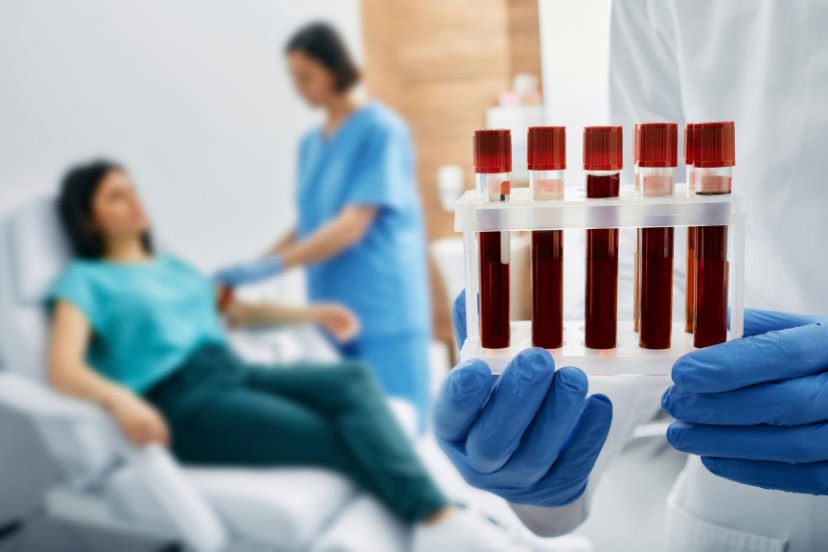Blood Test for Osteoporosis: The Definitive Guide
Introduction
Welcome, savvy readers, to a bone-chilling exploration of the crucial domain that is often overlooked – osteoporosis. Today, we embark on an insightful journey to demystify the nuances of detecting osteoporosis through a lens that focuses on the groundbreaking “blood test for osteoporosis.”
Blood Test for Osteoporosis: A Closer Look
Osteoporosis, often coined as the “silent disease,” stealthily weakens bones, making them fragile and prone to fractures. But fear not, because the blood test for osteoporosis emerges as a superhero in this narrative, ready to unveil secrets hidden within our veins.
What Does the Blood Test Entail?
Wondering what the blood test for osteoporosis involves? Well, it’s not about the bones themselves, but rather the markers in our blood that tell a compelling story about bone health.
Breaking It Down: Blood Markers
Let’s dive into the nitty-gritty of blood markers associated with osteoporosis. Key players like calcium, vitamin D, and specific proteins make a cameo, revealing clues about bone density and strength.
Decoding the Terminology: Blood Test Jargon
Before we proceed, let’s demystify the jargon associated with the blood test for osteoporosis. Familiarity with terms like “bone turnover markers” and “serum calcium levels” will empower you in decoding your test results.
Bone Turnover Markers
Ever wondered how fast your bones remodel? Bone turnover markers spill the beans on this. Understanding these markers helps in assessing bone health dynamically.
Serum Calcium Levels
Calcium, the backbone of bone health, is spotlighted in serum calcium levels. Unveil the secrets of how this vital mineral contributes to your skeletal strength.
The Quest for Osteoporosis Clues: FAQs Unveiled
1. How Accurate Is the Blood Test for Osteoporosis?
The blood test, while informative, is just one piece of the puzzle. Combining it with other diagnostic tools provides a more comprehensive view of bone health.
2. When Should One Opt for a Blood Test?
Ideally, adults over 50, postmenopausal women, and those with risk factors should consider the blood test for osteoporosis.
3. Can Lifestyle Changes Influence Test Results?
Absolutely. Factors like diet, exercise, and vitamin intake can impact blood markers. It’s crucial to maintain consistency for accurate assessments.
4. What If My Blood Test Indicates Osteoporosis?
A positive result doesn’t spell doom. Consultation with a healthcare professional is key. They’ll guide you on potential treatments and lifestyle adjustments.
5. Are There Any Risks Associated with the Blood Test?
Fear not. These tests for osteoporosis involves standard blood withdrawal procedures, posing minimal risks.
6. Can Medications Affect Blood Test Results?
Certain medications might influence results. Inform your healthcare provider about any ongoing treatments to ensure accurate readings.
Navigating the Maze: Interpreting Results
Congratulations, you’ve undergone the blood test for osteoporosis! Now, what do those cryptic numbers and markers mean? Let’s decipher the results together.
Interpreting the Numbers
Your results are in, and it’s time to make sense of them. Dive into the realm of T-scores, Z-scores, and other numerical indicators that paint a vivid picture of your bone health.
Taking Action: What’s Next?
Armed with knowledge, it’s time to chart your path forward. Whether it’s lifestyle adjustments, medication, or further tests, your healthcare provider will guide you toward optimal bone health.
Conclusion: Empowering Your Bone Health Journey
In the grand scheme of skeletal well-being, the blood test for osteoporosis stands as a beacon of insight. The journey doesn’t end with a diagnosis; it’s a continuous effort to fortify your bones and embrace a life of strength.




